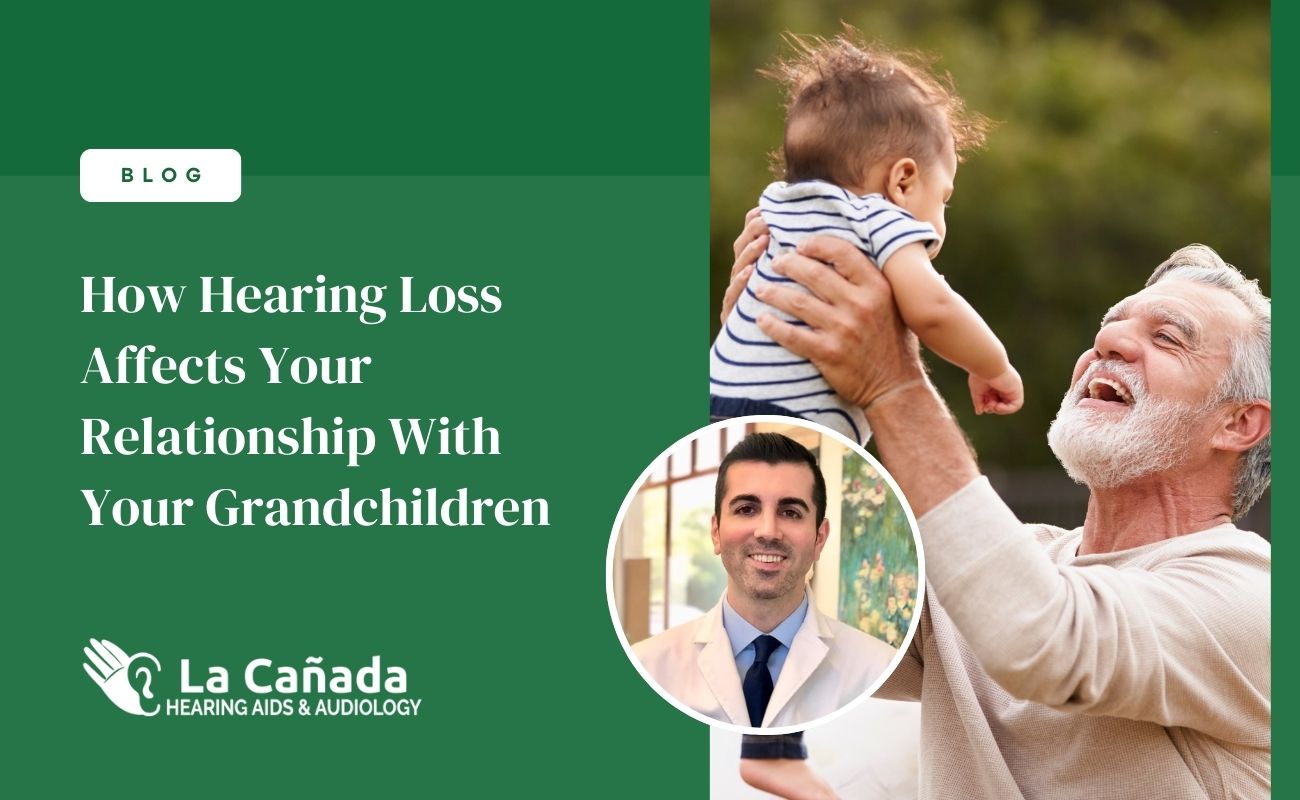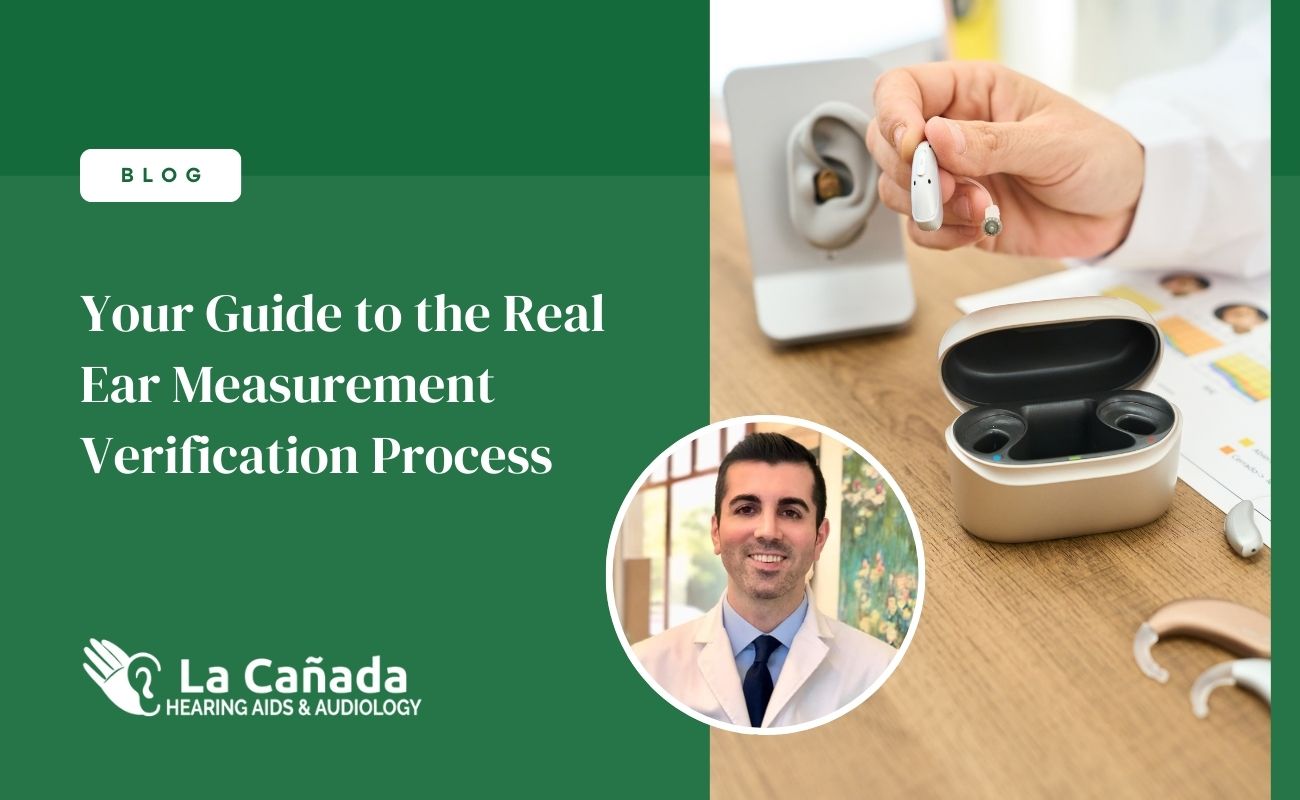Hearing loss, especially age-related hearing loss (ARHL), is a prevalent condition affecting our quality of life, social interactions, and even cognitive functions as we age, impacting 466 million people globally. Research increasingly suggests that ARHL not only diminishes hearing but also plays a significant role in the acceleration of cognitive decline and the elevated risks of dementia, including Alzheimer's disease, making it a pressing health concern.
As audiologists, we understand the critical intersection between hearing loss and cognitive decline, emphasizing the urgency to address hearing impairment proactively. Our article explores the potential mechanisms linking these conditions and discusses the beneficial role of hearing aids and interventions in mitigating cognitive risks.
Research Findings on the Connection Between Hearing Loss and Cognitive Decline
Recent research findings signal a critical connection that underscores the urgency of addressing hearing impairment. These findings collectively underscore hearing loss not only as a significant health issue but as a modifiable risk factor for dementia, emphasizing the crucial role of early detection and intervention.
- Impact of Hearing Aids on Cognitive Decline: A groundbreaking study by Dr. Frank Lin at Johns Hopkins University revealed that hearing aids can slow cognitive decline in older adults at high risk of dementia by almost 50% over a three-year period. This finding is pivotal, highlighting the potential of hearing aids to serve not just as devices for improving hearing but also as significant tools in the fight against cognitive decline.
- Hearing Loss as a Dementia Risk Factor:some text
- Mid-life hearing loss doubles the risk of developing dementia, surpassing any other single factor.
- A systematic review and meta-analysis showed hearing loss was associated with cognitive decline in the elderly across different races and colors.
- Severity of hearing loss correlates with increased dementia risk: mild loss doubles, moderate triples, and severe impairment quintuples the risk.
- Preventive Measures and Future Directions:some text
- The Lancet study indicates that older adults with hearing loss can reduce their risk of cognitive decline by nearly half through hearing aid use.
- The WHO's projection of over 700 million people with disabling hearing loss by 2050 amplifies the importance of proactive measures.
- The Aging and Cognitive Health Evaluation in Elders (ACHIEVE) Study aims to provide a more comprehensive understanding of how treating hearing loss affects cognition and dementia risk.
Understanding Hearing Loss
Understanding the complexities of hearing loss not only informs us about the health of our auditory system but also underscores the importance of early detection and intervention to mitigate associated cognitive risks. Here, we delve into the mechanisms and types of hearing loss, emphasizing the connection to cognitive decline.
Mechanisms Behind Hearing Loss:
- Sensorineural changes, predominantly seen in age-related hearing loss (ARHL) or presbycusis, affect about 40% of individuals over 65. This type of hearing loss is highly polygenic, with a heritability estimate of 36–70%.
- Sudden sensorineural hearing loss (SSHL) presents a 1.39 times higher likelihood of all-cause dementia.
The temporal lobe, crucial for hearing, language, and memory, may be smaller in those with hearing loss.
Types of Hearing Loss:
- Conductive Hearing Loss: Sound waves are blocked from reaching the inner ear. Causes include earwax, fluid, infection, or bone abnormalities.
- Sensorineural Hearing Loss: Damage to the inner ear or hearing nerve itself, commonly due to aging, loud noise exposure, or inherited conditions.
- Mixed Hearing Loss: A combination of conductive and sensorineural loss.
Causes and Symptoms:
- Causes: Range from aging, exposure to loud noises, ear infections, certain medications, and genetic conditions.
- Symptoms: Difficulty in understanding conversations, needing to increase volume on devices, and tinnitus.
Potential Mechanisms Linking Hearing Loss to Cognitive Impairment
Studies suggest that several potential mechanisms may link these two conditions. These hypotheses highlight the complexity of the relationship between hearing loss and cognitive impairment, underscoring the need for comprehensive approaches in research and patient care to unravel these connections.
- Brain Atrophy and Sensory Deprivation:some text
- Brain scans have shown that hearing loss may accelerate brain atrophy, particularly in areas responsible for processing sound and speech.
- The sensory deprivation hypothesis posits that this reduction in sensory input leads to decreased brain activity and cognitive function, as the brain receives less auditory information to process.
- Balance and Social Implications:some text
- Hearing loss can mute the subtle auditory cues necessary for maintaining balance, potentially increasing the risk of falls, which can have further health implications [6].
- The information-degradation hypothesis suggests that the difficulty in understanding speech due to hearing loss leads to social isolation. This isolation can reduce cognitive stimulation, further contributing to cognitive decline [3].
- Underlying Causes:some text
- The common cause hypothesis explores the possibility that hearing loss and dementia may share underlying causes, such as vascular disease or genetic factors, indicating a complex interplay between genetics, health conditions, and sensory impairments [3].
The Role of Hearing Aids and Interventions
In recognizing the pivotal role of hearing aids and interventions in mitigating cognitive risks, we focus on comprehensive strategies that encompass early detection, cognitive screening, and tailored hearing solutions. Our approach is multifaceted, aiming to address both the auditory and cognitive needs of our clients. By integrating these elements into our practice, we not only enhance the auditory experience for our clients but also contribute to their overall cognitive well-being, emphasizing the importance of early intervention and personalized care in hearing health.
- Early Detection and Cognitive Screening:some text
- Audiologists are trained to notice signs of cognitive decline such as memory difficulty and frequent missed appointments.
- Utilizing cognitive screening tests like the MoCA, which is sensitive to mild cognitive impairment, allows for early intervention.
- Implementing procedures that minimize hearing difficulties during testing ensures accurate assessment.
- Tailored Hearing Solutions:some text
- Hearing aids are not one-size-fits-all. Features that reduce cognitive load are essential for older clients with measurable cognitive decline.
- The three-year intervention study highlighted the importance of a hearing 'toolkit', including hearing aids, self-management tools, and ongoing audiologist support.
- Audiologists ensure access to hearing care services, recognizing the importance of social interaction and cognitive stimulation facilitated by improved hearing.
- Impact of Hearing Aids on Cognitive Function:some text
- Research by Dr. Frank Lin and the ACHIEVE study demonstrates that hearing aids can slow cognitive decline by up to 48% in individuals at high risk of dementia.
- Hearing aids alleviate cognitive strain by improving sound processing and encouraging social engagement, contributing to maintaining mental sharpness.
- Systematic reviews and meta-analyses reinforce the association between hearing aid use and decreased risk of cognitive decline, underscoring the value of hearing rehabilitation in dementia prevention strategies.
Hearing Aid Advancements & The Benefits for Cognitive Health
In the realm of hearing loss management, we are witnessing groundbreaking advancements that promise not just to treat but potentially reverse aspects of hearing impairment.
- Telemedicine: Expanding Access to Care:some text
- Offers unparalleled convenience, enabling patients to receive comprehensive hearing healthcare services from the comfort of their homes.
- Allows audiologists to remotely monitor patients' hearing health, adjust treatment plans, and ensure continuous support.
- Advanced AI in Hearing Aids: Transforming the User Experiencesome text
- Customizable Listening Experiences: AI-powered hearing aids adapt to the user's environment, providing an optimized listening experience.
- Real-time Sound Processing and Speech Clarity: Enhances speech understanding in challenging listening environments.
- Seamless Connectivity and Health Monitoring: Facilitates easy integration with smartphones and other devices, alongside monitoring vital health metrics.
These advancements signal a transformative era in hearing loss management, where the integration of cutting-edge technologies and therapies not only improves hearing outcomes but also holds the potential to mitigate the associated risks of cognitive decline. Through these innovations, we are moving closer to a future where hearing impairment does not dictate the quality of one's life or cognitive health.
Prioritize Your Cognitive Health with a Hearing Test
In our commitment to holistic healthcare, we understand the significance of prioritizing cognitive health through proactive measures, such as regular hearing tests. Hearing tests are not merely about assessing auditory function; they are a critical step in safeguarding your cognitive well-being. Here’s why:
- Early Detection: Identifying hearing loss early can lead to interventions that may not only improve hearing but also potentially mitigate associated cognitive risks.
- Routine Hearing Evaluations: Recommended annually for adults over 60 or for anyone noticing changes in their hearing.
- Baseline Hearing Assessment: Establishing a baseline for future comparisons can help in tracking hearing health over time.
- Tailored Intervention Strategies:some text
- Personalized Hearing Care Plans: Based on the results of your hearing test, we can develop a customized care plan that addresses both your hearing and cognitive health needs.
- Innovative Hearing Solutions: Incorporating the latest in hearing aid technology to ensure that your auditory experience is optimized, reducing cognitive load.
- Comprehensive Health Monitoring:some text
- Integrated Health Approach: We view hearing health as an integral part of overall well-being, closely monitoring any changes that could indicate broader health issues.
- Follow-up and Continuous Support: Regular check-ups and adjustments to your hearing care plan as needed, ensuring that you remain at the forefront of auditory and cognitive health.
By integrating hearing tests into your regular health check-up routine, you are taking a vital step towards not only enhancing your quality of life through improved hearing but also actively participating in preventive measures against cognitive decline.


.webp)





